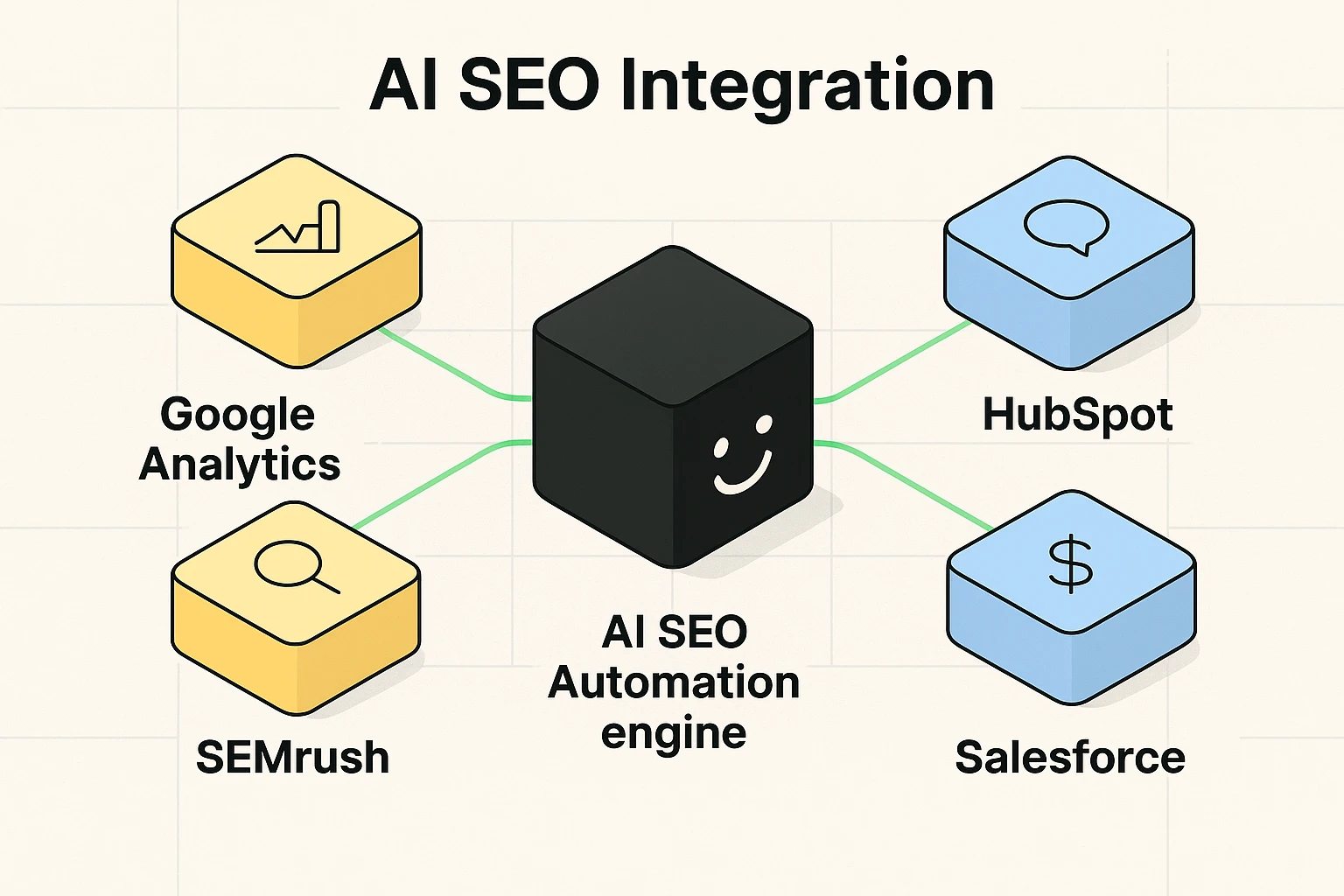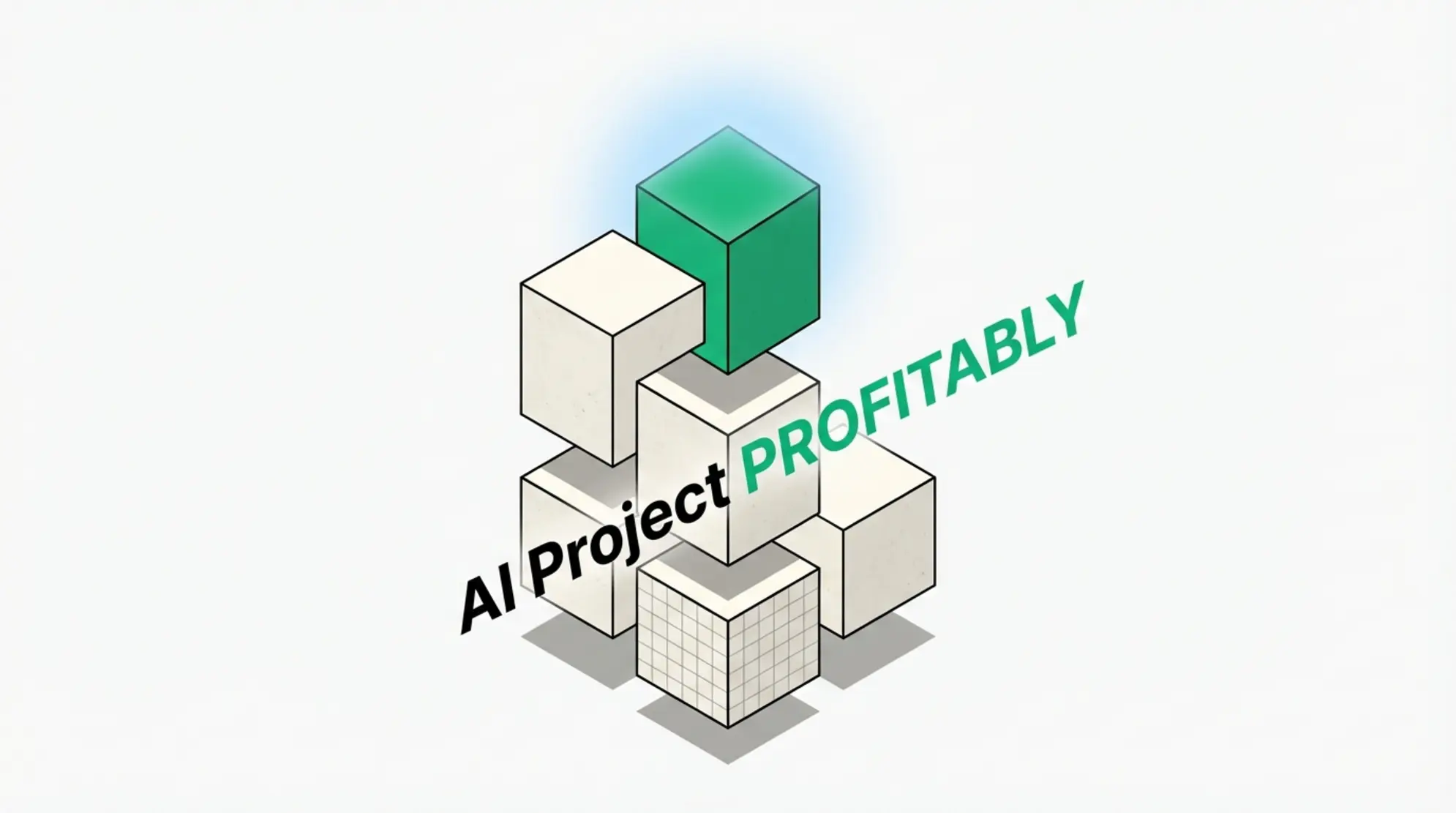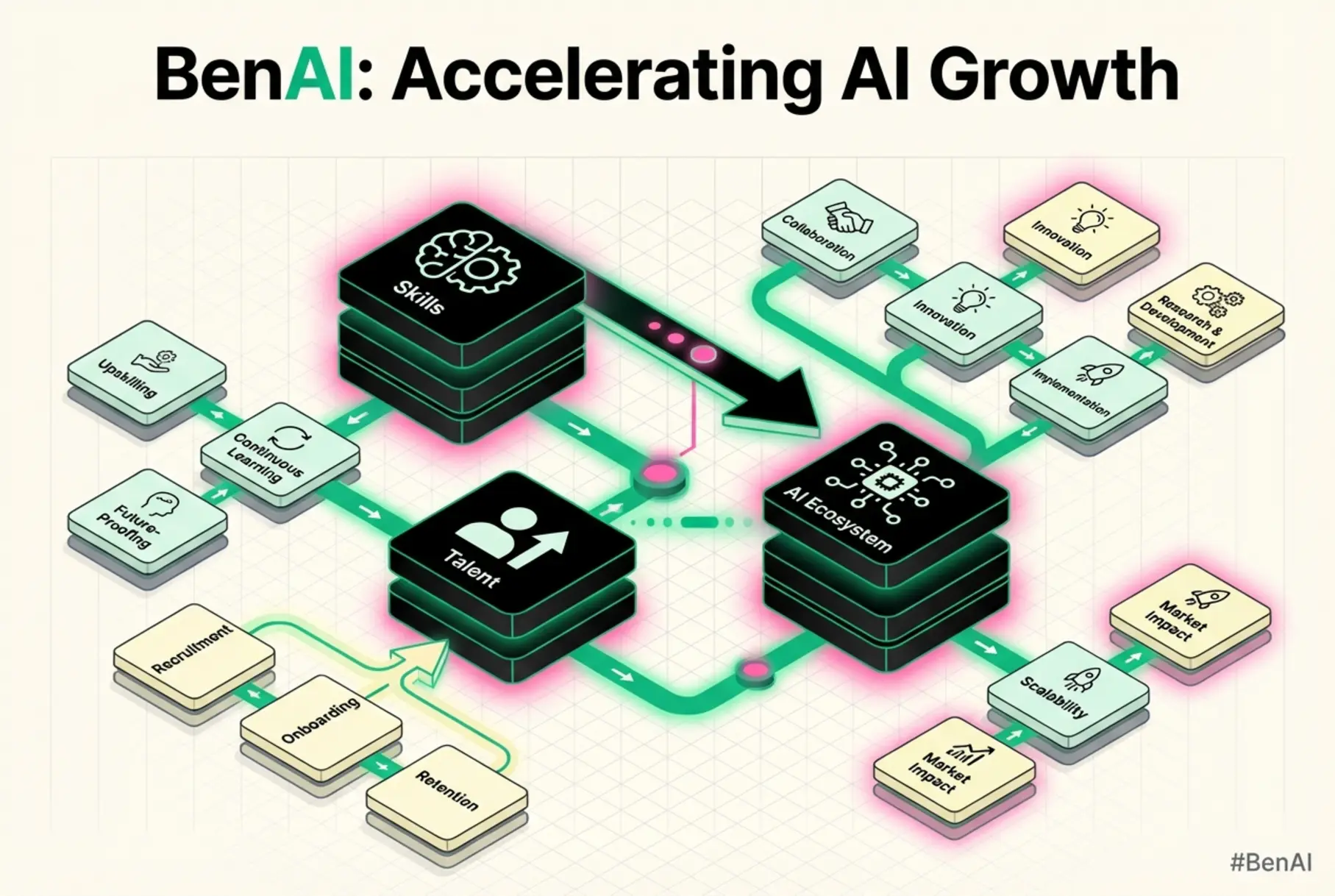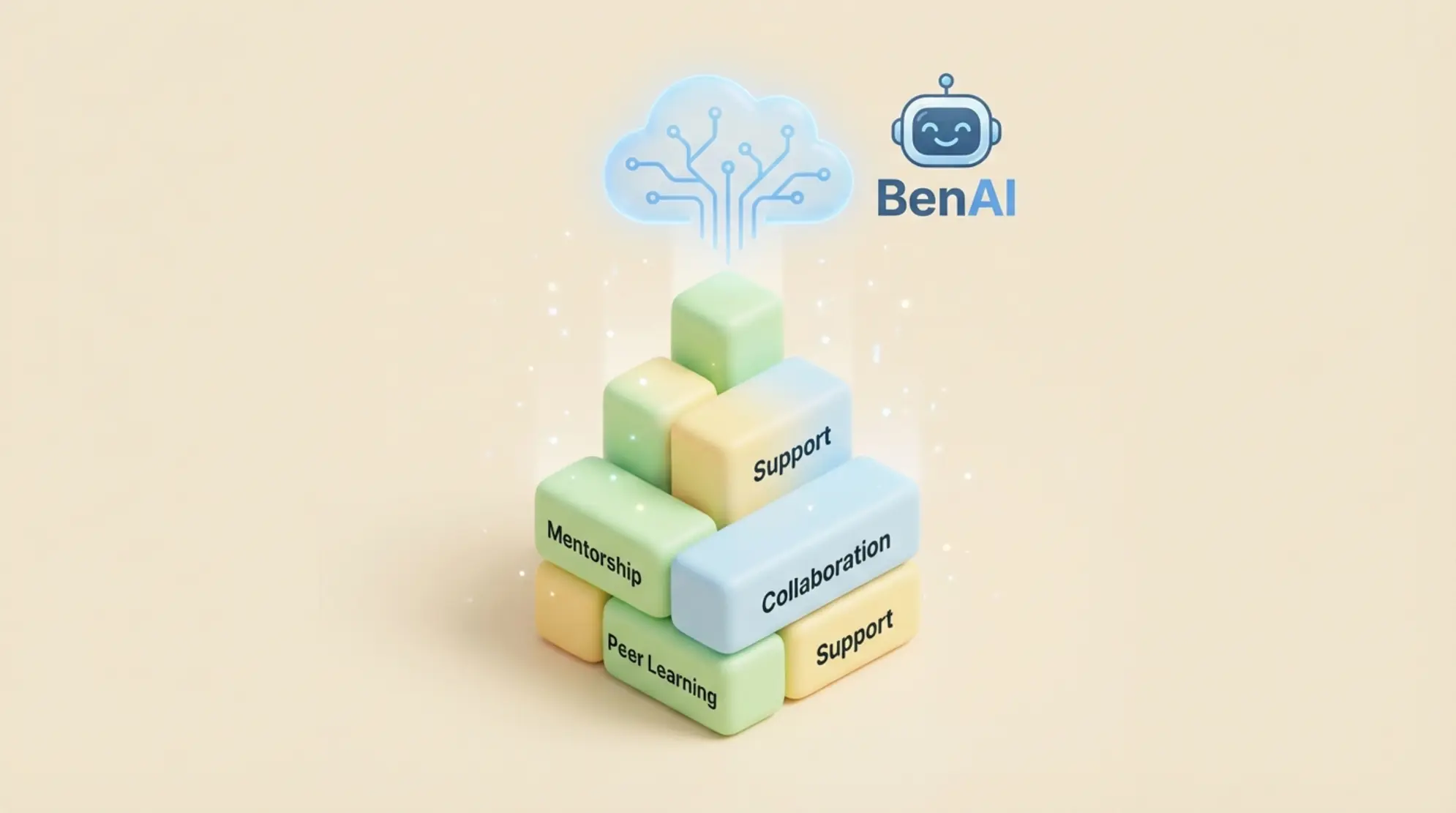Integrating AI SEO Automation: A Strategic Blueprint for Unified Marketing Stacks
The modern digital marketing landscape demands seamless synergy, and at its core, integrating AI SEO automation with existing marketing stacks offers a transformative pathway to operational efficiency and superior performance. This guide provides a strategic blueprint for marketers aiming to transcend traditional SEO limitations, achieving unprecedented levels of efficiency, insight, and lead generation by unifying SEO efforts with broader digital marketing and Customer Relationship Management (CRM) systems. We will explore how AI SEO automation streamlines workflows, enhances predictive capabilities, and ensures real-time optimization across platforms such as Google Analytics, SEMrush, HubSpot, and Salesforce.
Unlocking AI SEO Automation's Value within Your Marketing Stack
AI SEO automation isn't just a trend; it is a strategic imperative for marketers aiming to transcend traditional SEO limitations and achieve unprecedented levels of efficiency and insight. This approach defines how Artificial Intelligence (AI)-driven tools elevate Search Engine Optimization (SEO) efforts by automating repetitive tasks, enhancing predictive analytics, and ensuring real-time optimization. The process involves a fundamental shift from manual, reactive SEO to a proactive, data-driven methodology, laying the groundwork for unifying SEO with broader digital marketing and lead generation strategies. This strategic imperative supports organizations in managing larger content volumes, optimizing for more keywords, and targeting broader audiences without a proportionate increase in manual effort, thereby facilitating significant scalability.
Crafting Seamless AI SEO Integrations Across Core Platforms
Achieving true AI SEO automation synergy hinges on meticulously connecting your AI tools with the backbone of your marketing operations: your core platforms. This section provides detailed, step-by-step integration blueprints tailored for popular marketing technologies, including Google Analytics, SEMrush, HubSpot, and Salesforce. It delves into the technical setup workflows, emphasizing Application Programming Interface (API) configurations, critical data flows, and event triggering mechanisms necessary to unify SEO efforts with broader digital marketing and lead generation pipelines. This directly addresses the critical gap in practical, actionable integration guidance found in the current Search Engine Results Page (SERP) landscape, enabling marketers to connect their AI agents with any software for enhanced functionality.
Integrating diverse tools into a cohesive marketing stack requires precise planning and execution. Marketing teams must identify key data points and their respective sources, ensuring accurate synchronization and preventing data silos. This strategic approach transforms fragmented data into actionable intelligence, enhancing the overall performance of the marketing ecosystem.
Integrating AI SEO with Google Analytics: Data-Driven Insights
Unlocking the full potential of AI SEO begins with feeding it accurate, real-time performance data from Google Analytics. This process involves connecting AI SEO automation tools to Google Analytics, focusing on establishing seamless data flows for critical metrics such as search rankings, organic traffic, user behavior, and conversion data. AI then leverages these insights for automated anomaly detection, predictive traffic forecasting, and continuous optimization recommendations. According to SeoProfy, companies report 30% search ranking improvements within 6 months of AI adoption [https://seoprofy.com/blog/ai-seo-statistics/].
To integrate AI SEO with Google Analytics, consider these steps:
- API Connection: Establish an API connection between your AI SEO tool and Google Analytics. This typically involves configuring authentication credentials and granting necessary data permissions.
- Data Stream Configuration: Define specific data streams to flow from Google Analytics to your AI SEO platform. This includes organic traffic metrics, keyword performance, bounce rates, and conversion goals.
- Automated Reporting: Configure automated reports within the AI SEO tool that leverage Google Analytics data for real-time performance dashboards and alerts.
- User Behavior Analysis: Utilize AI to analyze user behavior patterns from Google Analytics, identifying opportunities for content improvement and site experience optimization.
Connecting AI SEO and SEMrush: Advanced Competitive Intelligence
Integrating AI SEO tools with SEMrush creates a powerful engine for automating competitive intelligence and optimizing for untapped opportunities. This section outlines crucial integration points for leveraging SEMrush's comprehensive suite of data, including in-depth keyword research, competitor analysis, backlink profiles, and site audit findings, within your AI SEO platforms. Emphasis is placed on automating competitive tracking, identifying semantic gaps, and informing AI-driven content strategies based on real-time market data. This allows for thorough AI keyword and content gap analysis to refine content strategies.
Steps for connecting AI SEO and SEMrush include:
- API Integration: Connect your AI SEO platform to SEMrush via its API, enabling programmatic access to competitive data.
- Keyword Data Synchronization: Synchronize keyword research data, including search volume, difficulty, and ranking positions, to inform AI content generation and optimization.
- Competitor Monitoring Automation: Automate monitoring of competitor strategies, including their top-performing content, backlink acquisition, and pay-per-click campaigns.
- Site Audit Integration: Feed site audit findings from SEMrush into AI tools for automated technical SEO recommendations and issue prioritization.
- Semantic Gap Analysis: Utilize SEMrush data to identify semantic gaps in content strategy, allowing AI to suggest new topics and content angles for improved topical authority.
Harmonizing AI SEO with HubSpot: Unified Content and CRM
For marketers seeking to close the loop between content, SEO, and sales, integrating AI SEO automation with HubSpot is a game-changer. This subsection explains how to seamlessly link AI SEO content creation and optimization tools with HubSpot's robust CRM, content management, and lead nurturing functionalities. The focus is on aligning SEO efforts directly with lead generation pipelines, enabling personalized content delivery, predictive lead scoring based on organic behavior, and streamlined content governance within a unified platform. This integration supports automating lead research and CRM updates with AI.
Key steps for integrating AI SEO with HubSpot involve:
- CRM Data Flow: Establish a two-way data flow between AI SEO tools and HubSpot CRM, synchronizing lead information, engagement metrics, and content interactions.
- Content Management System (CMS) Integration: Link AI content creation and optimization platforms directly with HubSpot's CMS for seamless publishing and updates.
- Personalized Content Delivery: Leverage AI insights to personalize content recommendations and delivery based on individual lead behavior and organic engagement within HubSpot.
- Predictive Lead Scoring: Implement AI-powered predictive lead scoring models that incorporate organic search data, providing sales teams with highly qualified leads.
- Content Governance Workflows: Automate content governance processes, ensuring SEO best practices are applied to all content created and managed within HubSpot.
Integrating AI SEO with Salesforce: Driving Sales-Ready Leads
The ultimate goal of many marketing efforts is sales enablement, and integrating AI SEO automation with Salesforce directly fuels your sales pipeline with qualified leads. This detailed section covers the process of flowing SEO-qualified leads and critical insights from AI SEO tools into Salesforce, ensuring sales teams receive timely, data-rich information. It highlights the benefits of AI-powered lead qualification, enhanced sales enablement through SEO context, and the overall improvement in the efficiency and effectiveness of the sales funnel.
To integrate AI SEO with Salesforce, consider these steps:
- API Configuration: Configure API connections between your AI SEO tools and Salesforce to facilitate the secure transfer of lead data and insights.
- Lead Data Mapping: Define specific lead data fields and attributes to be mapped from AI SEO platforms to Salesforce, ensuring consistency and relevance for sales teams.
- AI-Powered Lead Qualification: Implement AI models to qualify leads based on organic behavior, search intent, and content engagement, providing sales with pre-vetted prospects.
- Sales Enablement Dashboards: Create customized dashboards within Salesforce that display SEO context for each lead, empowering sales representatives with deeper insights into prospect interests.
- Automated Lead Routing: Automate the routing of SEO-qualified leads to the appropriate sales representatives based on predefined criteria, accelerating the sales cycle.
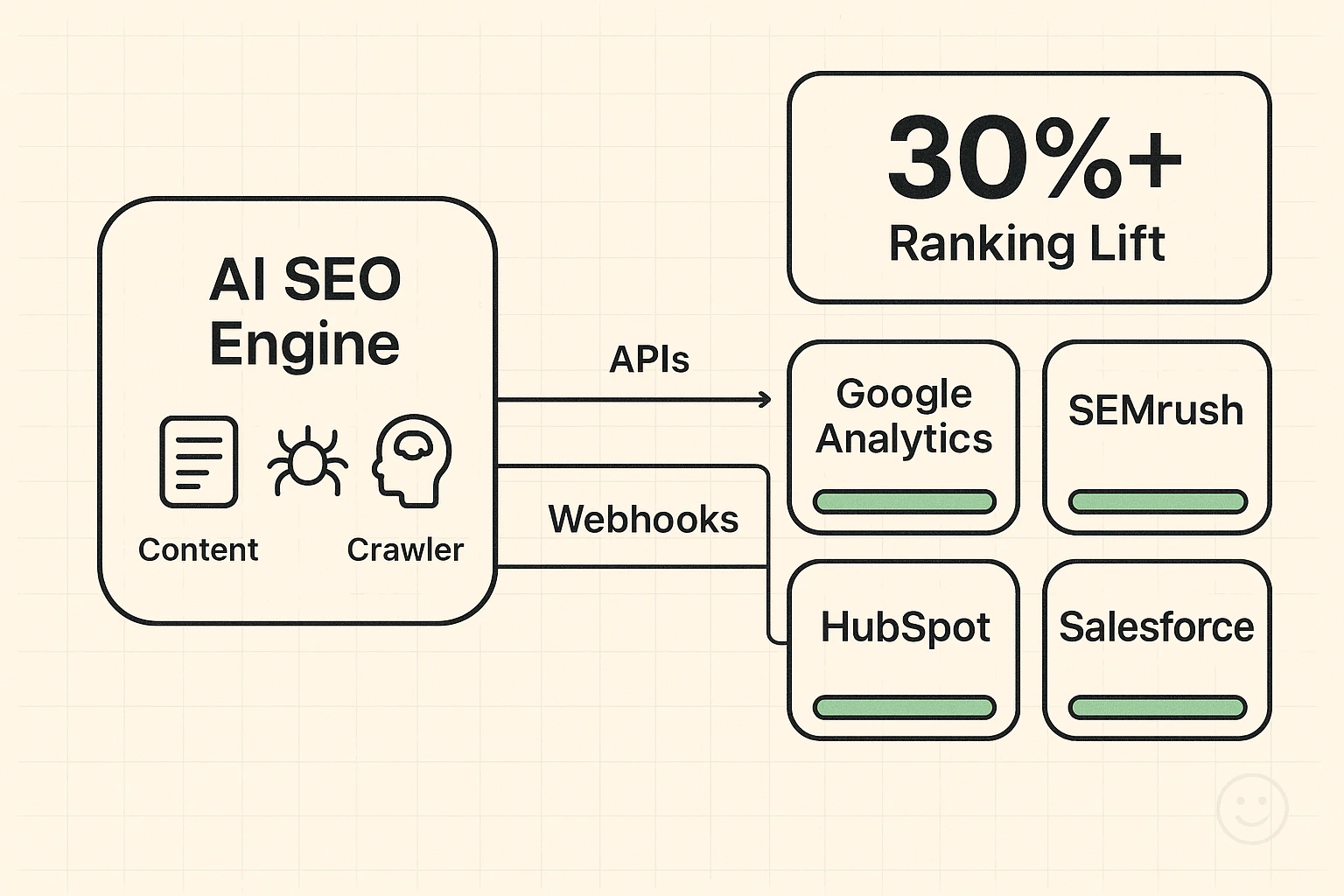
Quantifying Impact: Measuring ROI and Efficiency Gains from AI SEO
While the promise of AI SEO automation is compelling, its true value is revealed through tangible, quantifiable results that directly impact your bottom line. This section addresses the critical need for quantitative impact stories and clear Return on Investment (ROI) demonstration. It outlines key performance indicators (KPIs) and provides concrete examples of how businesses measure time saved, lead generation lift, and significant SEO performance gains. According to SeoProfy, 86% of SEO professionals have integrated AI into their SEO strategies; companies report 30% search ranking improvements within 6 months of AI adoption [https://seoprofy.com/blog/ai-seo-statistics/].
AI SEO automation drives substantial operational cost reductions and efficiency gains. For example, AI reduces keyword research time from 8–12 hours to 15–30 minutes per piece, as stated by Passionfruit SEO [https://www.getpassionfruit.com/blog/ai-seo-tool-stack-the-complete-technology-suite-for-modern-marketing-teams]. This time saving allows marketing teams to focus on strategic initiatives rather than repetitive tasks. Furthermore, 67% of SEO experts prioritize automation of repetitive tasks as the chief AI benefit, according to SeoProfy [https://seoprofy.com/blog/ai-seo-statistics/].
Key Performance Indicators (KPIs) for measuring ROI include:
- Organic Traffic Growth: Measures significant increases in organic sessions and users, indicating improved visibility and reach.
- Search Ranking Improvements: Tracks higher positions for target keywords across various search engines.
- Time Savings: Quantifies the reduction in hours spent on manual SEO tasks, such as content auditing, keyword research, and technical analysis.
- Lead Generation Lift: Reports the increase in qualified leads directly attributed to SEO efforts, demonstrating marketing pipeline impact.
- Conversion Rate Optimization: Monitors improvements in conversion rates from organic traffic, reflecting enhanced user experience and content relevance.
- Cost Reduction: Assesses lower operational costs due to automation, including reduced labor hours and optimized tool expenditures.
Selecting and Deploying AI SEO Tools for Workflow Interoperability
Choosing the right AI SEO tools extends beyond individual features; it is about selecting components that seamlessly integrate into your existing marketing stack and enhance workflow interoperability. This section guides decision-makers through evaluating AI SEO tools based on their compatibility with core marketing platforms, API capabilities, data export options, and overall strategic fit. It addresses the critical gap in comparative tool feature matrices by providing a framework for transparent analysis of strengths, weaknesses, and, most importantly, their interoperability within a complex marketing ecosystem.
When selecting tools, marketers must consider how each AI SEO solution interacts with existing analytics, CRM, and content management systems. A tool that provides robust AI SEO solutions and integrates seamlessly minimizes friction and maximizes efficiency. Compatibility ensures smooth data exchange, preventing data silos and allowing for a unified view of marketing performance. This strategic approach transforms fragmented data into actionable intelligence, enhancing the overall performance of the marketing ecosystem.
Comparative Analysis: AI SEO Tools for Marketing Stack Synergy
Evaluating AI SEO tools requires a keen eye on how they truly interact with your entire marketing ecosystem, not just their standalone functionalities. This sub-section presents a focused comparison of leading AI SEO tools, such as Jasper, Surfer SEO, and Clearscope, specifically highlighting their integration capabilities, data export options, and API availability with common marketing platforms like HubSpot, Salesforce, Google Analytics, and SEMrush. It includes a clear breakdown of their interoperability strengths and weaknesses, addressing a major content gap.
| Feature / Tool | Jasper | Surfer SEO | Clearscope | Integration Strengths | Integration Weaknesses |
|---|---|---|---|---|---|
| API Availability | High | Medium | Medium | Robust for content creation platforms | Less direct for analytics/CRM data beyond content |
| Real-time Sync | Moderate | Moderate | High | Strong for content optimization, keyword suggestions | Primarily focused on on-page SEO; limited CRM data sync |
| Data Export Options | Comprehensive | Comprehensive | Comprehensive | CSV, JSON, direct integrations with content editors | Requires manual setup for complex cross-platform data flows |
| HubSpot Compatible | Via Zapier/API | Limited direct sync | Limited direct sync | Content creation for HubSpot blogs/landing pages | Does not natively pull lead data or behavioral analytics |
| Salesforce Sync | Via Zapier/API | Minimal | Minimal | Supports content campaigns that feed into lead nurturing | No direct integration for lead qualification or sales pipeline |
| Google Analytics | Indirect | Indirect | Indirect | Informational content driven by traffic insights | No native data pull for performance metrics or user behavior |
| SEMrush Integration | Indirect | Direct (Keyword, Gap) | Direct (Keyword, Gap) | Enhances content based on competitive keyword insights | Primarily focuses on keyword and content gap analysis, not broader competitive intelligence |
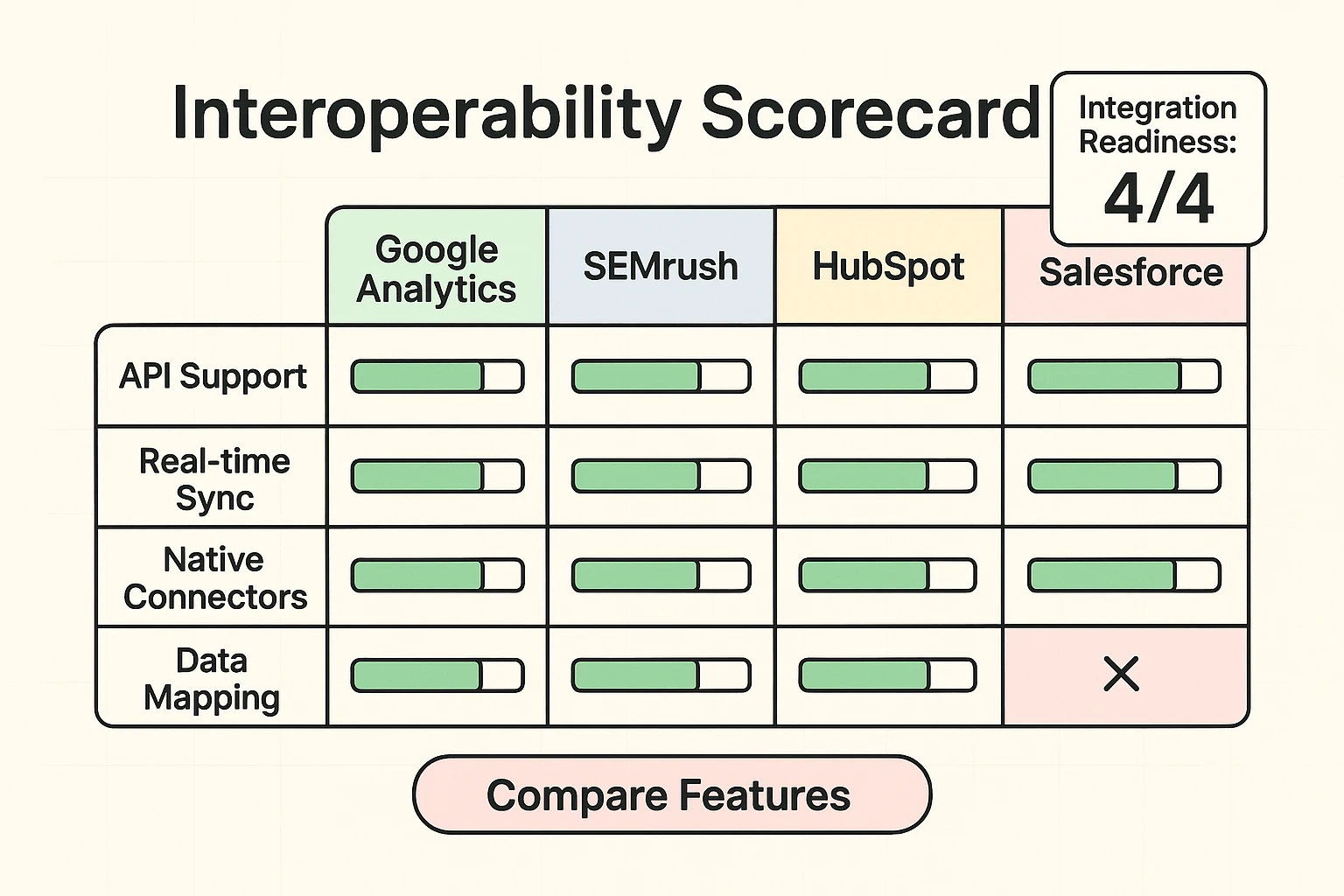
Overcoming Integration Hurdles: Troubleshooting and Best Practices
While the vision of an integrated AI SEO marketing stack is compelling, real-world implementation often presents challenges that require strategic troubleshooting and adherence to best practices. This section directly addresses the "detailed troubleshooting for AI automation conflicts and data silos" content gap, offering practical advice for common integration hurdles. It covers issues such as API errors, data inconsistencies, workflow bottlenecks, and data validation, providing actionable solutions to ensure smooth and reliable AI SEO automation. Addressing these issues proactively secures consistent AI SEO automation performance.
Common integration hurdles and their solutions include:
- API Errors: Occur due to incorrect authentication tokens, rate limits, or malformed requests.
- Solution: Verify API keys and credentials, monitor API usage against rate limits, and consult vendor documentation for proper request formatting. Implement robust error logging to quickly identify and debug issues.
- Data Inconsistencies: Arise when data types or formats do not match between integrated platforms.
- Solution: Establish clear data mapping protocols before integration. Utilize data transformation tools or scripts to normalize data formats, ensuring consistency across all systems.
- Workflow Bottlenecks: Happen when one step in the automation process slows down or halts subsequent steps, often due to overloaded systems or inefficient process design.
- Solution: Optimize existing workflows by identifying and removing redundant steps. Implement asynchronous processing where possible, distributing tasks to prevent single points of failure.
- Data Silos: Emerge when information remains isolated within individual systems, preventing a unified view of customer or performance data.
- Solution: Design integrations with a holistic data architecture in mind, ensuring all critical data points flow into a centralized data repository or a unified dashboard. Utilize universal connectors or middleware solutions.
- Lack of Data Validation: Leads to inaccurate or corrupted data entering downstream systems.
- Solution: Implement rigorous data validation checks at each integration point. This ensures that only clean and accurate data is processed, maintaining data integrity.
Supplementary Section
Essential Glossary of AI SEO and Marketing Stack Terminology
Navigate the complex language of AI SEO and marketing stacks with our quick reference guide to essential terminology. This section provides concise definitions for key terms like AI, SEO, CRM, MarTech, API, and Predictive Analytics, acting as a contextual border for users needing clarity.
- AI (Artificial Intelligence): The simulation of human intelligence processes by machines, especially computer systems.
- SEO (Search Engine Optimization): The process of improving the quality and quantity of website traffic to a website or a web page from search engines.
- CRM (Customer Relationship Management): Technology for managing all your company's relationships and interactions with customers and potential customers.
- MarTech (Marketing Technology): The blending of marketing and technology, referring to the major software and tools marketers use to plan, execute, and measure campaigns.
- API (Application Programming Interface): A set of defined rules that enables different applications to communicate with each other.
- Predictive Analytics: The use of data, statistical algorithms, and machine learning techniques to identify the likelihood of future outcomes based on historical data.
Further Resources: Templates and Checklists for Seamless Integration
Accelerate your AI SEO integration journey with these practical resources designed to streamline your planning and execution. This section offers quick access to downloadable workflow templates, integration checklists, and sample data flow diagrams, providing actionable supplementary content without diluting the main article's core message. These resources are ideal for practical implementation and serve as internal linking points for related guides.
- Workflow Templates: Streamline your integration process with pre-designed templates for common AI SEO automation workflows.
- Integration Checklists: Ensure comprehensive coverage of all critical steps with detailed checklists for connecting AI SEO tools to your marketing stack.
- Data Flow Diagrams: Visualize complex data movements between platforms, aiding in the design and troubleshooting of your integrated ecosystem.
BenAI: Your Partner in AI SEO Marketing Stack Integration
At BenAI, we understand the complexities of weaving advanced AI SEO capabilities into your existing marketing technology stack, and we engineered a solution to make this integration not just possible, but powerfully effective. Our proprietary platform provides custom integration blueprints tailored for your specific combination of Google Analytics, SEMrush, HubSpot, and Salesforce, ensuring seamless data flows and unified workflows. BenAI offers sophisticated predictive lead scoring, continuous technical SEO monitoring, and AI-powered content automation with agent approval workflows, directly addressing the rare and unique attributes identified in your research. We turn your fragmented data into a cohesive, high-performing marketing engine, driving measurable ROI and establishing unassailable topical authority.
BenAI's unique capabilities include:
- Custom Integration Blueprints: Tailored solutions for specific marketing stack combinations.
- Predictive Lead Scoring: AI-powered models that qualify leads with higher accuracy based on organic behavior.
- Continuous Technical SEO Monitoring: Proactive identification and resolution of technical SEO issues.
- AI-Powered Content Automation: Streamlined content creation and optimization with agent approval workflows.
- Unified Data Streams: Transforms disparate data sources into a cohesive, actionable marketing intelligence platform.
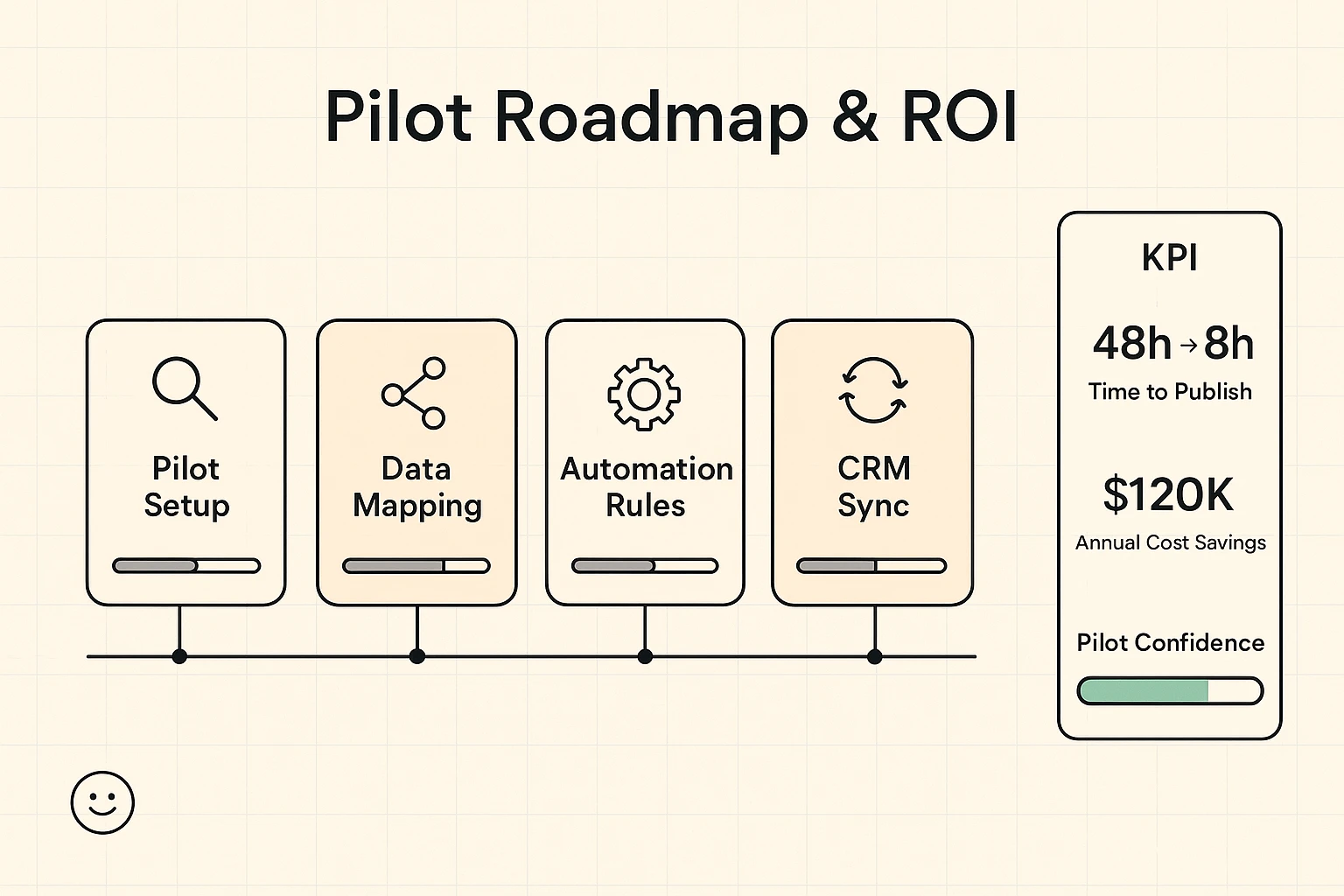
FAQs
What are AI SEO automation tools?
AI SEO automation tools are software solutions that leverage artificial intelligence to streamline, optimize, and enhance various aspects of search engine optimization. They automate repetitive tasks like keyword research, content optimization, technical audits, and performance monitoring, often providing predictive analytics for better decision-making and real-time adjustments.
How do I integrate AI SEO with my CRM platforms like HubSpot or Salesforce?
Integrating AI SEO with CRMs typically involves API connections or specialized connectors to synchronize data. This enables the flow of SEO-qualified leads, content performance insights, and customer behavioral data between your AI SEO tools and CRM. The goal is to align content efforts with lead nurturing and sales processes, allowing for predictive lead scoring, personalized customer experiences, and a unified view of the customer journey.
What metrics show ROI on AI SEO automation?
Key metrics for demonstrating ROI on AI SEO automation include:
- Organic Traffic Growth: Significant increases in organic sessions and users.
- Search Ranking Improvements: Higher positions for target keywords. According to SeoProfy, companies report 30% search ranking improvements within 6 months of AI adoption [https://seoprofy.com/blog/ai-seo-statistics/].
- Time Savings: Quantifiable reduction in hours spent on manual SEO tasks.
- Lead Generation Lift: Increase in qualified leads attributed to SEO.
- Conversion Rate Optimization: Better conversion rates from organic traffic.
- Cost Reduction: Lower operational costs due to automation.
How to choose AI tools compatible with my existing tech stack?
Selecting compatible AI SEO tools requires evaluating their API availability, data integration capabilities, and existing connectors for platforms like Google Analytics, SEMrush, HubSpot, and Salesforce. Prioritize tools that offer robust documentation, support for common data formats, and demonstrated success in similar integration scenarios to ensure seamless workflow interoperability and avoid data silos. Thoroughly review vendor roadmaps for future integration plans.
Can AI SEO automation scale with my marketing team?
Yes, AI SEO automation is inherently designed for scalability. By automating repetitive tasks and providing data-driven insights, it empowers marketing teams to manage larger content volumes, optimize for more keywords, and target broader audiences without a proportionate increase in manual effort. According to SeoProfy, 67% of SEO experts prioritize automation of repetitive tasks as the chief AI benefit [https://seoprofy.com/blog/ai-seo-statistics/]. Successful scaling requires initial strategic planning, proper integration, and continuous team training to leverage new capabilities.
Join Our Growing AI Business Community
Get access to our AI Automations templates, 1:1 Tech support, 1:1 Solution Engineers, Step-by-step breakdowns and a community of forward-thinking business owners.
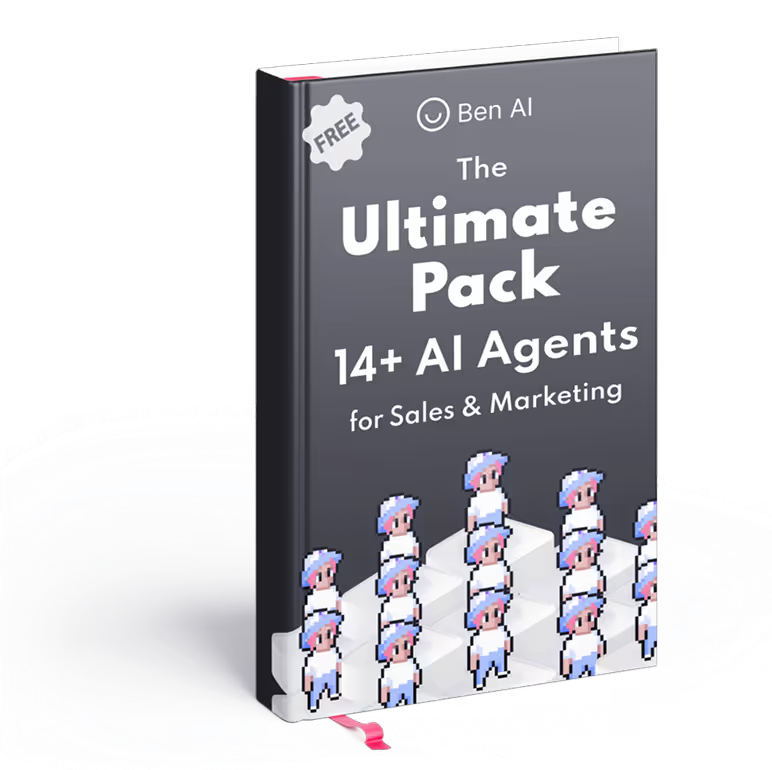
Latest Blogs
Explore our latest blog posts and insights.

